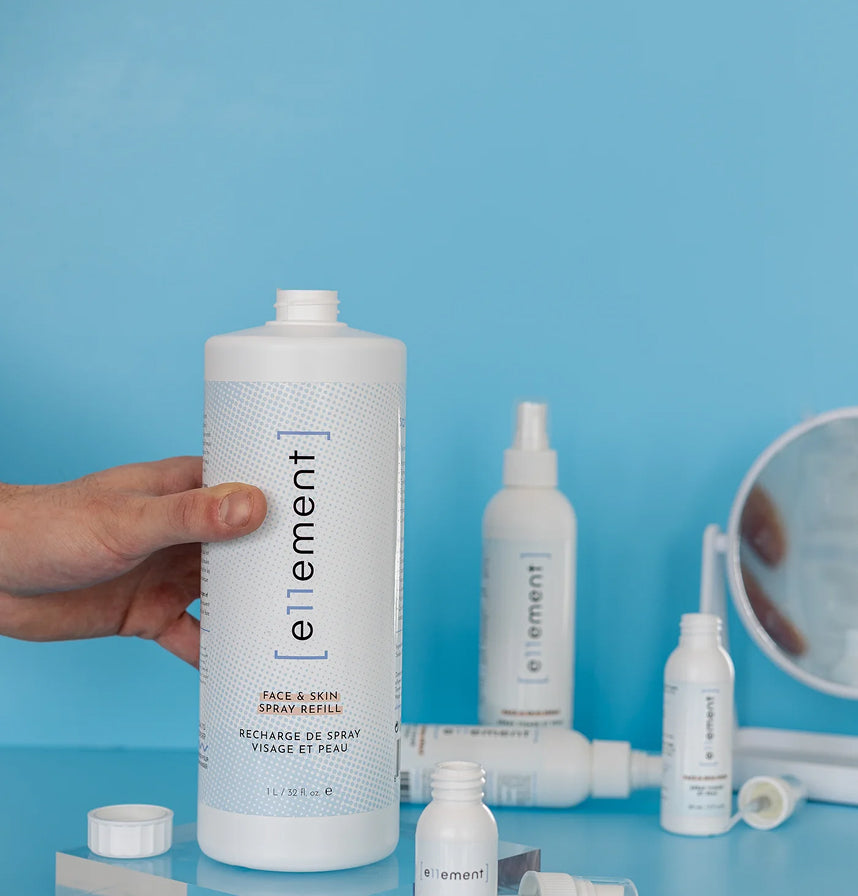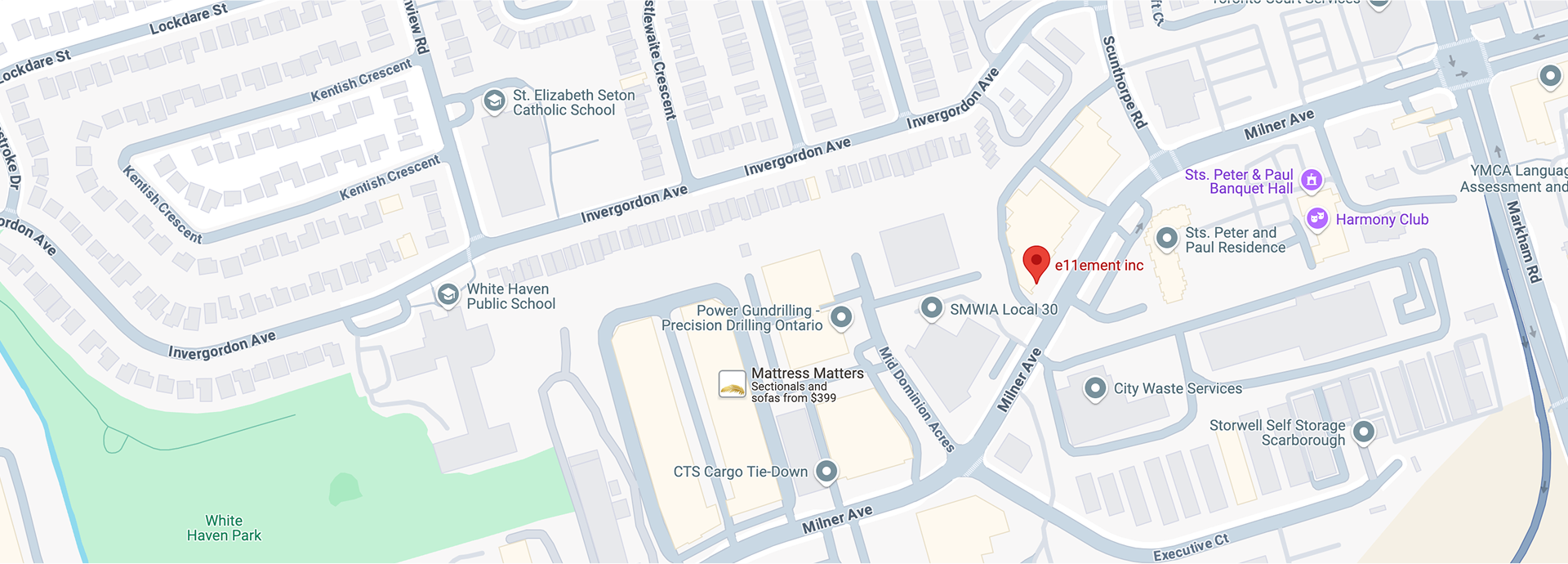Acne is one of the most common skin concerns affecting millions of people worldwide. Whether you experience occasional breakouts or struggle with chronic acne, finding a skincare routine that effectively manages and reduces acne symptoms is essential. Among the many ingredients available in acne treatment, hypochlorous acid (HOCl) is emerging as a standout for its potential benefits in promoting clear, healthy skin.
Incorporating hypochlorous acid spray into your acne skincare routine can help to reduce inflammation, combat bacteria, and support your skin’s natural healing process. This article delves deep into the role of hypochlorous acid in skincare, focusing on how it can be a game-changer for individuals dealing with acne.

What is Hypochlorous Acid?
Hypochlorous acid (HOCl) is a naturally occurring compound in the human body. It plays a crucial role in the immune system's response to harmful pathogens, including bacteria, viruses, and fungi. Hypochlorous acid is produced by white blood cells and acts as a powerful antimicrobial agent, helping the body fight off infections and promote healing.
When applied topically in skincare products, hypochlorous acid can offer similar benefits, especially in the context of acne. It is a gentle yet effective solution that mimics the body’s natural defenses and helps keep the skin clean and healthy without causing irritation.
How Does Hypochlorous Acid Work?
To understand how hypochlorous acid works in acne skincare, it's essential to know that acne is often caused by clogged pores, excess oil production, and the presence of acne-causing bacteria, specifically Propionibacterium acnes (P. acnes). These factors contribute to inflammation, leading to breakouts, blackheads, and pustules.
Hypochlorous acid combats acne by:
- Reducing Bacterial Growth: Hypochlorous acid is known for its antibacterial properties, targeting harmful bacteria that contribute to acne formation. By eliminating these bacteria, hypochlorous acid helps to reduce the likelihood of breakouts.
- Decreasing Inflammation: Acne is often accompanied by redness, swelling, and irritation. Hypochlorous acid has natural anti-inflammatory properties that soothe the skin and help calm active breakouts.
- Promoting Skin Healing: One of the significant advantages of hypochlorous acid is its ability to accelerate the skin's natural healing process. It assists in repairing damaged skin tissues and preventing scarring, which is crucial for those dealing with severe acne.
The Science Behind Hypochlorous Acid and Acne
A growing body of scientific evidence supports the use of hypochlorous acid for acne treatment. Studies have shown that hypochlorous acid is effective at killing P. acnes bacteria without causing irritation or dryness. Unlike traditional acne treatments like benzoyl peroxide and salicylic acid, which can often lead to dryness, peeling, and discomfort, hypochlorous acid is gentle enough for daily use.
Another critical benefit of hypochlorous acid is that it does not promote bacterial resistance. Many antibiotics used to treat acne can become less effective over time as bacteria evolve to resist them. However, the mechanism of action of hypochlorous acid does not allow bacteria to develop resistance, making it a sustainable long-term solution for acne-prone skin.
Why Use Hypochlorous Acid in Your Acne Skincare Routine?
If you're considering adding hypochlorous acid spray to your acne skincare routine, here are several reasons why it might be an excellent choice:
1. Hypochlorous Acid is Gentle Yet Effective
One of the biggest challenges in treating acne is finding a product that is effective without being too harsh. Many acne treatments can strip the skin of its natural oils, leading to dryness, irritation, and even more breakouts. Hypochlorous acid, however, is gentle on the skin and suitable for all skin types, including sensitive and acne-prone skin.
Because it closely mimics the body’s natural immune response, hypochlorous acid helps to balance the skin without disrupting its protective barrier.
2. It Targets the Root Cause of Acne
As discussed, acne is caused by a combination of factors, including bacteria, inflammation, and clogged pores. Hypochlorous acid addresses all of these issues simultaneously. By reducing bacterial load, calming inflammation, and supporting the skin’s healing process, it tackles acne at its source, helping to prevent future breakouts.
3. It’s a Safe and Natural Solution
Many people are turning to more natural and biocompatible skincare solutions, and hypochlorous acid fits perfectly into this trend. Because it is a substance produced by the body, hypochlorous acid spray is a safe, natural alternative to more aggressive treatments like harsh acids or retinoids.
Furthermore, hypochlorous acid has minimal side effects, making it ideal for long-term use.
4. It Can Be Used Alongside Other Treatments
If you’re already using other acne treatments, such as retinoids or antibiotics, hypochlorous acid can complement your current routine. Its soothing and anti-inflammatory properties help mitigate the irritation caused by more potent products, making it easier to adhere to your skincare regimen without experiencing excessive dryness or discomfort.
How to Incorporate Hypochlorous Acid Spray in Your Skincare Routine
Adding hypochlorous acid spray to your acne skincare routine is simple and straightforward. Here’s how to make the most of it:
1. Cleanse Your Skin
Start your skincare routine with a gentle, non-comedogenic cleanser that removes dirt, oil, and makeup without stripping your skin. This step ensures that your skin is clean and ready to absorb the benefits of hypochlorous acid.
2. Apply Hypochlorous Acid Spray
After cleansing, spray hypochlorous acid evenly across your face. You can either let it air dry or gently pat it into your skin with clean hands. The spray form of hypochlorous acid makes it easy to apply evenly and allows it to penetrate the skin's surface without causing irritation.
Hypochlorous acid can be used both in the morning and evening, as it is safe for frequent application. Its non-irritating formula makes it ideal for use after activities like exercising, where sweat and bacteria can accumulate on the skin.
3. Moisturize
After applying hypochlorous acid, follow up with a moisturizer suited to your skin type. For acne-prone skin, choose a lightweight, oil-free moisturizer that hydrates without clogging pores. Moisturizing is essential to maintaining a healthy skin barrier, especially if you're using other acne treatments that may dry out your skin.
4. Apply Sunscreen
If you're using hypochlorous acid during the daytime, be sure to apply sunscreen with at least SPF 30. Sun protection is crucial in any skincare routine, particularly for acne-prone skin that may be more vulnerable to post-inflammatory hyperpigmentation (dark spots) caused by sun exposure.
5. Pair with Spot Treatments if Needed
For stubborn breakouts, you can use hypochlorous acid spray alongside your favorite spot treatments. Apply the hypochlorous acid first to calm inflammation and reduce bacteria, then follow up with a targeted treatment for individual pimples.
Potential Side Effects of Hypochlorous Acid
Despite its effectiveness, hypochlorous acid is remarkably gentle and rarely causes side effects. Most people can use hypochlorous acid spray without any adverse reactions. However, if you have extremely sensitive skin or any known allergies to skincare ingredients, it's always a good idea to patch test a new product before applying it to your entire face.
In rare cases, some individuals may experience mild irritation or a stinging sensation upon application. If this occurs, discontinue use and consult a dermatologist.
Hypochlorous Acid vs. Other Acne Treatments
When considering hypochlorous acid as part of your acne skincare routine, it’s essential to understand how it compares to other common treatments for acne.
- Hypochlorous Acid vs. Benzoyl Peroxide
Benzoyl peroxide is a widely used acne treatment known for its ability to kill bacteria and reduce breakouts. However, benzoyl peroxide can be harsh on the skin, leading to dryness, peeling, and irritation. Hypochlorous acid, on the other hand, offers similar antibacterial benefits without the same level of irritation, making it a gentler option for those with sensitive skin.
- Hypochlorous Acid vs. Salicylic Acid
Salicylic acid is another popular ingredient in acne treatment products, known for its exfoliating properties that help unclog pores. While salicylic acid is effective at preventing breakouts, it can also cause dryness and irritation in some individuals. Hypochlorous acid provides a more hydrating and soothing alternative, especially for those whose skin reacts negatively to exfoliants.
- Hypochlorous Acid vs. Retinoids
Retinoids, including over-the-counter retinol and prescription-strength tretinoin, are powerful treatments for acne. They work by increasing cell turnover and preventing clogged pores. However, retinoids often come with side effects such as dryness, redness, and sensitivity, particularly during the initial stages of use. Hypochlorous acid can be used alongside retinoids to help calm inflammation and support the skin’s healing process.
Conclusion
Incorporating hypochlorous acid spray into your acne skincare routine can be a highly effective way to manage and prevent breakouts while maintaining the health of your skin. Its unique combination of antibacterial, anti-inflammatory, and healing properties makes it an excellent choice for individuals seeking a gentle yet powerful solution for acne.
Unlike other harsh treatments, hypochlorous acid works in harmony with your skin’s natural defenses, providing a safe and non-irritating option for long-term use. By addressing the root causes of acne, reducing inflammation, and promoting faster healing, hypochlorous acid offers a holistic approach to acne care. Whether used on its own or as a complement to other treatments, hypochlorous acid can be a valuable addition to your skincare regimen for clearer, healthier skin.























